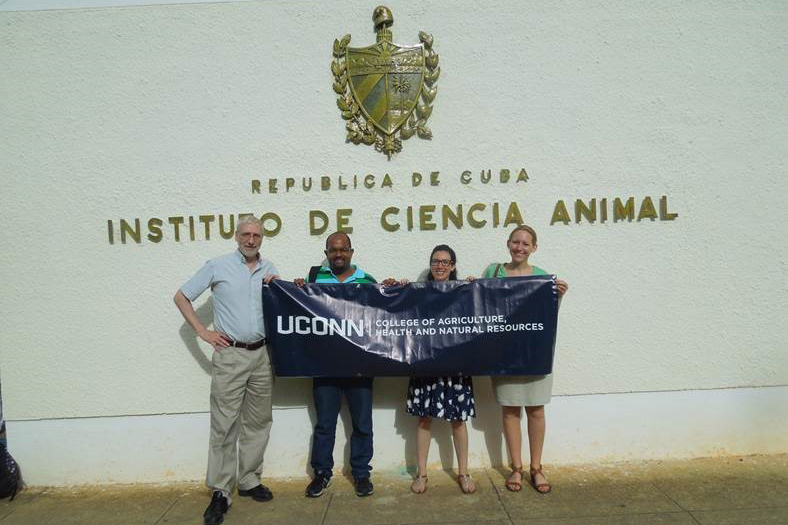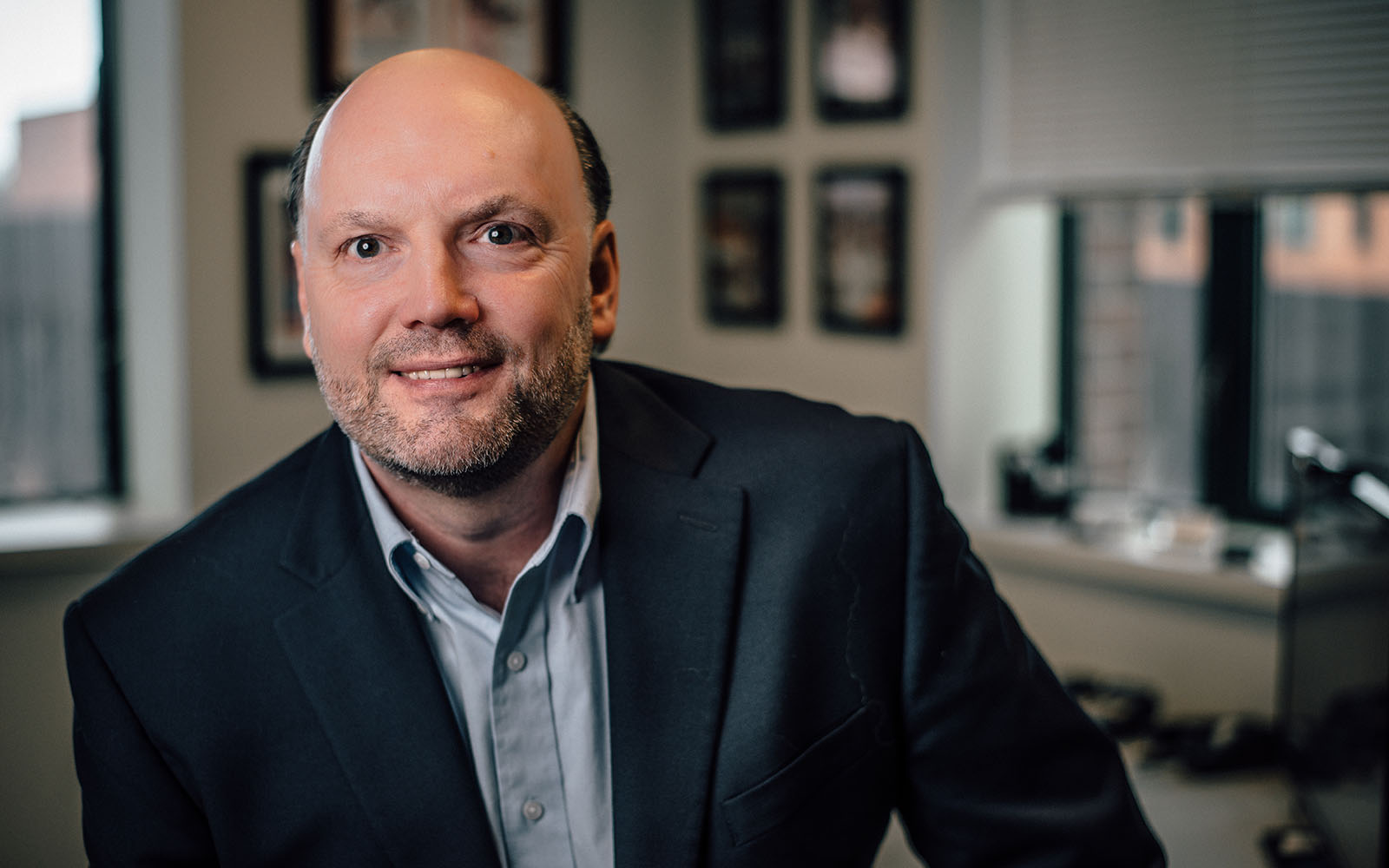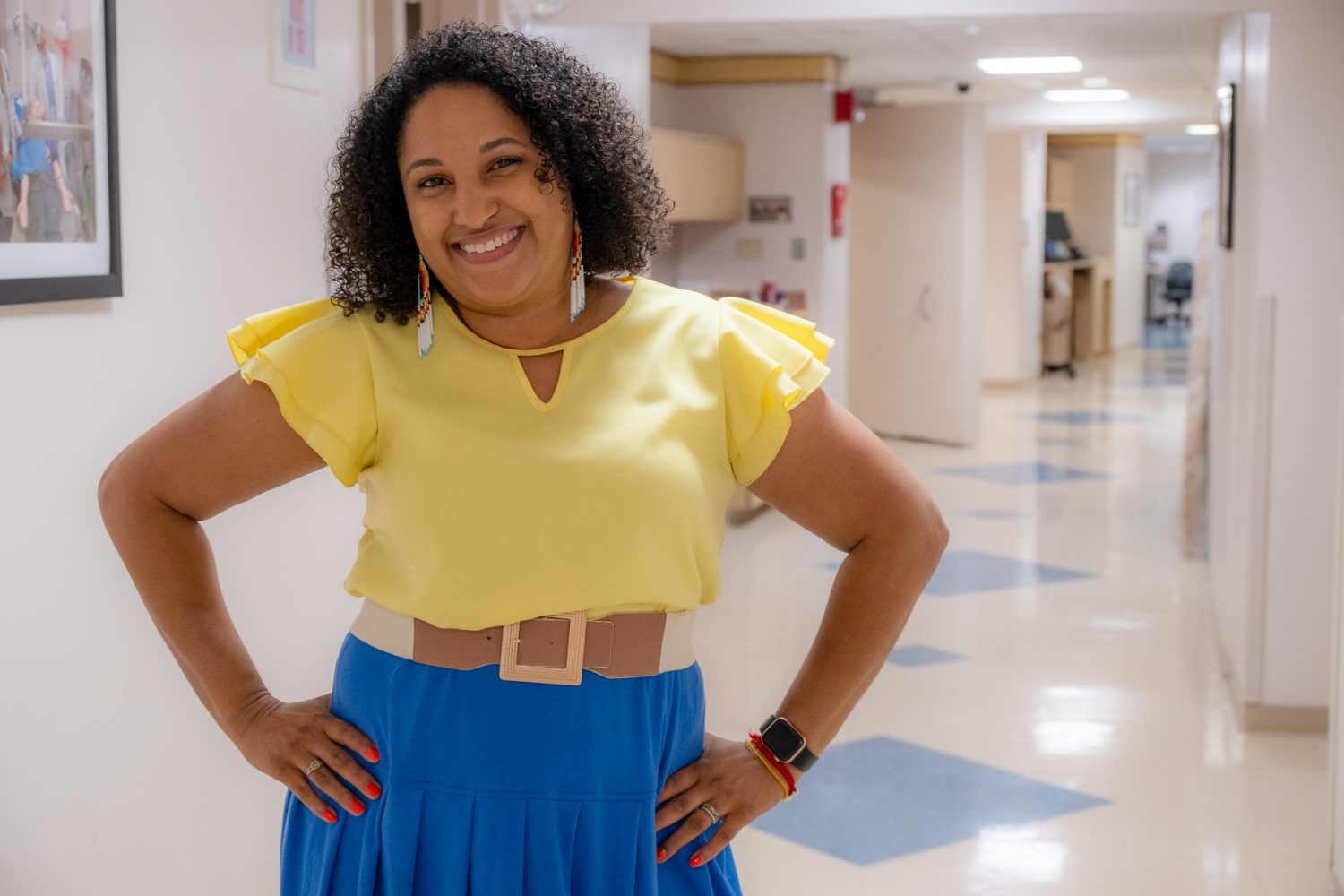UConn is expanding its global engagement to the shores of Cuba with the help of faculty members and students from the College of Agriculture, Health and Natural Resources. A June conference at the Instituto de Ciencia Animal provided an opportunity for UConn to share its collaborative spirit with Cuba, now possible with the re-establishment of diplomatic relations with the United States last year.
Students Gabrielle West, Gabriela Murillo and Jacques Julien made the journey to Cuba to present their research at Interjoven 2016, the VII Encuentro Internacional de Jóvenes Agropecuarios. The international conference focuses on engaging researchers, producers and technicians from around the world on topics related to the development of sustainable agricultural production and beneficial health initiatives. The conference also hopes to inspire youth in the country to become involved and invested in agricultural production, which has steadily declined over the years.
West and Murillo are PhD students in the Department of Nutritional Sciences. West discussed lipoprotein particles in connection with using fish oil to address cardiovascular health issues. Murillo presented her research on liver function in guinea pigs, studying processes that occur in many other animals. Julien is a PhD candidate in Department of Agricultural and Resource Economics (ARE) whose research focuses on farm size and productivity. The students were accompanied by soil scientist Cristian Schulthess, associate professor in the Department of Plant Science and Landscape Architecture, who learned about the soil concerns of Cuban farmers and businesses, including hazardous waste in urban gardens, nutrient process retention and soil salinity.



